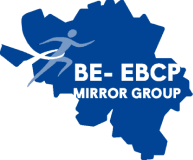Project
URISAMP
Disease and vaccine monitoring based on non-invasive genital tract liquid biopsy sampling.
1 May 2022 - 30 April 2027
URISAMP will contribute to simplify and facilitate sexually transmitted infection (STI) vaccine research and provide valuable data for disease modelling.
Project Description
The ability to easily obtain appropriate and reliable biological samples is critical to advance life sciences and public/personal health. Having a sample that is non-invasive and can be self-collected at home has major acceptance and feasibility advantages. Our team demonstrated that first-void urine (FVU) samples can replace clinician collected cervical samples to prevent cervical cancer caused by the Human Papilloma virus (HPV). Using the initial or first void urine stream is crucial here. Indeed, the outer layers of the epithelium of the genital tract exfoliate and together with the genital mucus form the utero-cervico-vaginal-smear, it accumulates between the labia minora, around the urethral opening and upon initiation of urination this discharge is washed away with the FVU. URISAMP uses HPV infection and vaccination models to prove the hypothesis that FVU is the ideal liquid genital tract biopsy to monitor immune response for women.
URISAMP will:
- identify and validate analytical methods to detect the relatively low and fluctuating concentration of potential biomarkers in FVU;
- provide protocols to study neutralizing antibodies and look at antigen-antibody interaction;
- demonstrate how FVU sampling can enhance our knowledge regarding the biology of HPV, genital tract immunology, mechanisms of infection and transmission, the biological basis of prevention and potential correlates of protection.
URISAMP will contribute to simplify and facilitate sexually transmitted infection (STI) vaccine research and provide valuable data for disease modelling. Moreover, if URISAMP proves successful, and FVU can also replace other samples types (e.g.blood), applications will largely extend the STI field, and its impact as a novel diagnostic and prognostic tool for health assessment will be substantial.
Funding programme & Type of action
Funding Programme : Horizon Europe – European Research Council (ERC)
Type of Action : Horizon Action Grant Budget-Based
Grant agreement number : 101040588
Project duration
5 years
